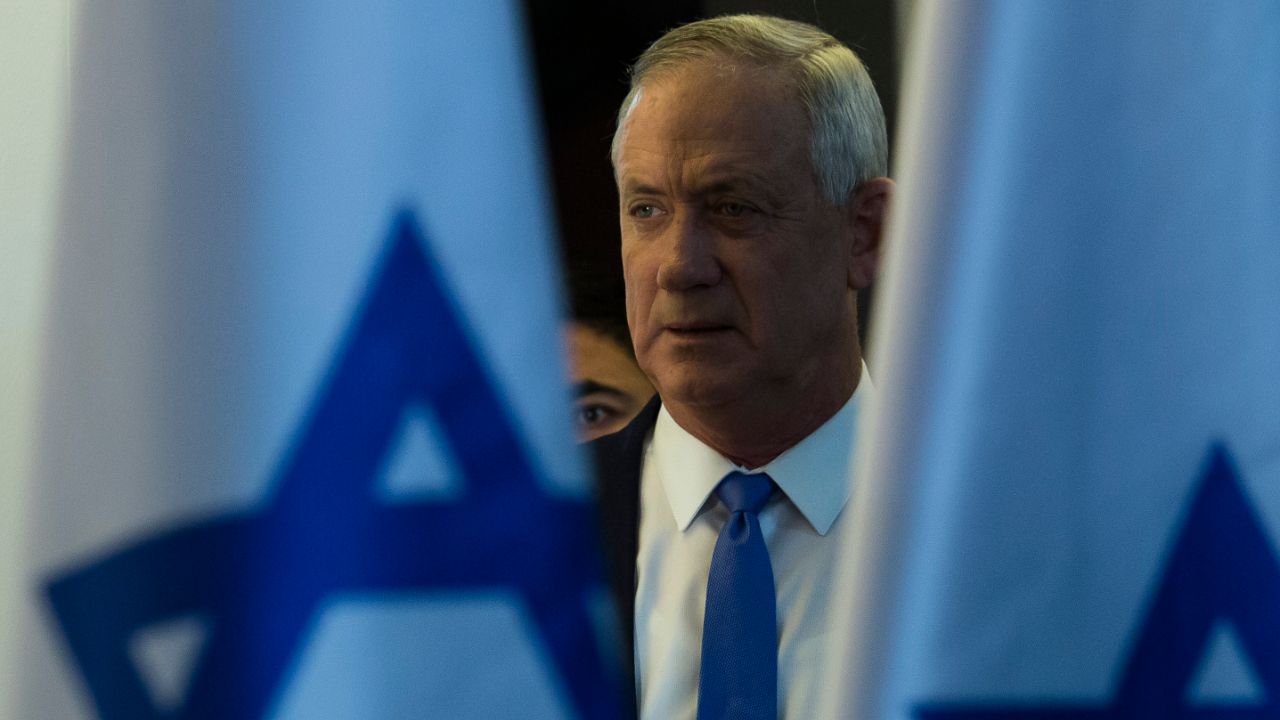The election of Benny Gantz, the leader of the Blue and White Party as the speaker of the Knesset is a major and unpredictable change in the political arena of the Zionist regime. This incident has changed all the calculations and equations in the political structure of the Zionist regime to the extent that Gantz’s agreement with the Likud party was the most unexpected news for the Zionist regime community that did not consider the slightest chance that Gantz and Netanyahu would agree to form a unity government.
Benny Gantz is a professional Zionist military man who has entered politics; given his sensitive positions in the army Gantz is highly regarded among extremist Zionist figures. After entering politics, Gantz formed the Blue and White Party as a moderate party between the rival Labor and Likud parties.
During the past year, there has been intense competition between the Blue and White and the Likud parties to the extent that neither of them has won a majority of the Knesset seats after three rounds of elections since last September; so efforts were made so that either of the two parties forms broad coalitions with smaller parties to reach the quorum, and the one who gets a higher coalition vote will form the government.
In the last election, the Likud Party led by Benjamin Netanyahu who got 36 seats, failed to form a coalition with other parties, but to the surprise of political observers, the 1948 Palestinian-affiliated Arab parties with 15 seats sided with the Blue and White Party.
It seems the Arab parties prefer Bani Gantz to Benjamin Netanyahu, as the former had pledged during consultations with Arab parties that he would restrict expansions of settlements in East Jerusalem and the West Bank if he could form the government.
Meanwhile, Benjamin Netanyahu has been pursuing a policy of developing Jewish settlements over the past five years. So Benny Gantz was about to form his government but changed his mind at the last minute. He was elected chairman of the Knesset.
There are many speculations about Gantz’s refusal to form a government the most notable being the recent confession by the Blue and White Party leader that he was unable to move much because of a spinal cord injury and therefore preferred to sit on the Israeli Knesset. Of course, under the agreement, the Blue and White Party and the Likud Party would form a government once every six months.
There is also speculation that the Arab parties appear to have been betrayed in voting for the Blue and White Party, as it is likely for Gantz and Netanyahu to have reached compromise agreement behind the scene to pursue such a policy, that is whoever gets a higher vote would form the government by using the votes of the Arab parties and then refuse to stop the settlement policy.
On the other hand, it is a rare occurrence in the political arena of the Zionist regime to elect the leader of one of the powerful Israeli parties as the head of the Knesset, since it has not happened for the nominee of forming a government to suddenly take over the chairmanship of the parliament.
In fact, the options close to the reality are that due to the unstable conditions of Occupied Palestine, as well as the forthcoming US presidential election and the likelihood of Donald Trump’s defeat, Zionist politicians have preferred that the political status of the regime remain floating until the US election.
Since it has been agreed for the government to rotate once every six months between the rival Blue and White and Likud parties, two subjects will be on the agenda of Benjamin Netanyahu over the next six months. First his attempt to develop settlements and second to advance the “Deal of the Century” scheme. Thus, it appears that Netanyahu has been empowered to form a government aimed at developing settlements and confronting Palestinian militant movements.
Since the United States will be involved in the presidential election by November this year, Netanyahu will use the political vacuum in America to develop Jewish settlements. Finally, it can be said that If Donald Trump is re-elected, Benjamin Netanyahu will remain in power, but if the Democratic candidate wins the next US election, the power will certainly shift to the Blue and White Party, and the Zionist regime will have to coordinate its policies with the Democratic Party of America.










0 Comments